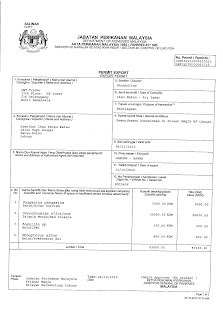International Commercial Terms ( INCOTERMS)
Commonly in use
Ex Works ( or sometime spelled as Ex-Factory)
for loading at factory ( although most of the simpler stuffing activities , seller may just do it . BUT this do to waive buyer from the responsibility at any cost ), export inland transport , export custom clearance and port charges, cargo insurance, export terminal charges, Freight charges, import custom clearance and port charges, custom duty & taxes, import inland trucking and unloading at final destination
FOB ( Free On Board)
Seller responsible for loading at factory , export inland trucking , export custom clearance and port charges.
Buyer responsible for Freight charges, cargo insurance, import custom clearance and port charges, custom duty & taxes, Import inland trucking and unloading at final destination
CFR ( Cost and Freight )
Seller responsible for loading at factory, export inland trucking , export custom clearance and port charges and freight
Buyer responsible for cargo insurance, import custom clearance and port charges, custom duty & taxes, Import inland trucking and unloading at final destination
CIF ( Cost , Insurance and Freight)
Seller responsible for loading at factory, export inland trucking, export custom clearance and port charges, freight and cargo insurance
Buyer responsible for import custom clearance and port charges, custom duty & taxes, Import inland trucking and unloading at final destination
DDU ( Door Delivery Duty Unpaid)
Seller responsible for loading at factory , export inland trucking, export custom clearance and port charges, freight , cargo insurance, import port charges and import inland trucking
Buyer responsible for import custom clearance , custom duty and taxes and unloading at final destination
DDP ( Door Delivery Duty Paid)
Seller responsible for loading at factory, export inland trucking, export custom clearance and port charges, freight , cargo insurance, import custom clearance and port charges, custom duty and taxes and unloading at final destination
FAS ( Free Alongside Ship)
Popular for break bulk shipment. Cargo deliver up to alongside ship on the dock within reach of the ship loading equipment.
Seller responsible for loading at factory, export inland trucking , export custom clearance and port charges Buyer responsible for cargo insurance, import custom clearance and port charges, freight charges, custom duty & taxes, Import inland trucking and unloading at final destination
FCA ( Free Carrier)
Usually end with a point , such as FCA Port Klang, FCA Shah Alam and etc.
Seller responsible for loading at factory to the specified point , export custom clearance and port charges
Buyer responsible for Freight charges, cargo insurance, import custom clearance and port charges , import custom duty & taxes, Import inland trucking and unloading at final destination












